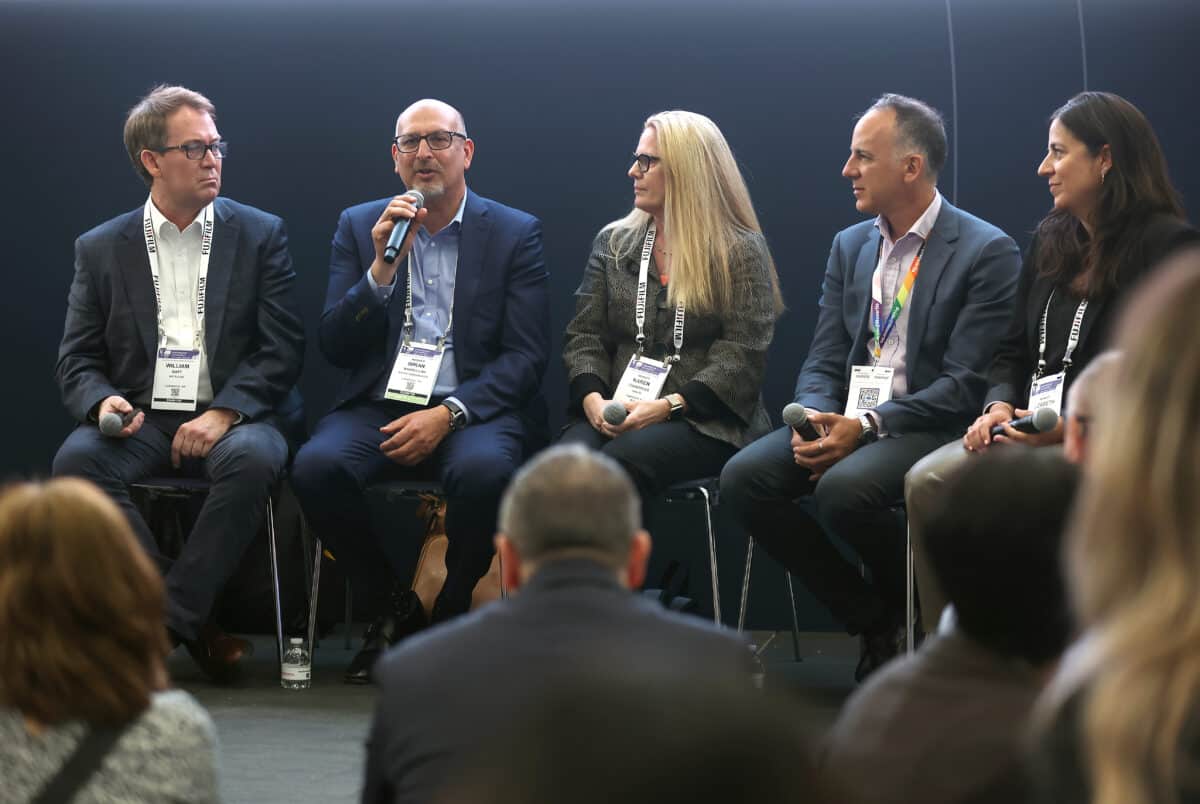
Q: Why Massachusetts?
A: The global epicenter for the life sciences.
If the last month in the life sciences industry has shown us anything, it’s that all roads lead to Massachusetts.
Continued public/private investment in (and around) the industry, an incredibly talented workforce (that’s about to grow rapidly), and an unmatched entrepreneurial culture have set Massachusetts apart. While we still have work to do, this ecosystem is primed to lead in this new era of healthcare innovation and deliver results for patients around the world.
But – in a constantly shifting landscape – how can Massachusetts stay on top? That was the overarching question MassBio’s former Vice President of Innovation Gauri Nair posed to panelists from Astellas Venture Management, Bayer, Sanofi, Novartis, and Merck during a panel focused on accelerating innovation.
The current funding environment is a top-of-mind issue for biotech startups and biopharmas alike. Being in greater Boston does give you a leg up if you are a small company, offered Imran Nasrullah of Bayer, attributing that to Massachusetts’ status as a powerhouse that naturally attracts funding sources – corporate strategic arms and venture capital to new movers like disease foundations with investment funds to non-dilutive funders like the federal government. Lizbeth Leveille of Merck agreed, saying that the good news is that small companies with great science will find funding, although pharma companies and investors have become more discerning when it comes to a prospective investment or partnership.
Tapping into Massachusetts’ world-class academic institutions is a key to unlocking scientific innovation. “The importance of academics to this ecosystem is foundational…and big pharmas come here because of the science that is getting done here and having access to it is important,” said Nasrullah. “Working with academics offers a way to get into new cutting-edge areas in biology.”
The panelists showcased a number of ways their organizations are working to bridge the academia-industry relationship. Sanofi has set up a milestone-driven seed program for exploratory studies with academic collaborators, as Karen Chandross noted, which ends up being as much about the relationship as the financial commitment – a win-win.
For Avi Spier of Novartis, collaboration with academia is essential. For the areas where Novartis seeks collaboration, there is a mechanism to support it – funded, non-funded, spinouts, licensing, etc. – and they can think and act big if the opportunity arises (see Novartis-Berkeley Translational Chemical Biology Institute). And Astellas Venture Management is amplifying their impact by making LP (limited partner) investments in university-dedicated funds said Bill Watt – offering that as a new model for academic support.
On the question of how academics can engage with pharma, Merck’s Leveille reinforced that BD teams are partners – helping to see where academics might fit into the portfolio and internally advocating for the technology or product. Incubators and accelerators are a place where pharma and emerging founders can find each other, pointed out Watt of Astellas, and really it could be as simple as being at the same networking events and convenings as the pharma BD folks (as Nasrullah suggested).
In closing, Gauri asked a crucial question – how can MassBio accelerate innovation in the ecosystem? A seed fund, a database of partnering opportunities, and ‘Convene! Convene! Convene!’ were all music to our ears.
The entrepreneurial culture of our ecosystem drives the work that we do at MassBio. As Watt (who calls Seattle home) observed, every time he comes to Boston, it seems like MassBio is doing something new. In addition to our flagship Pharma Days – which have now facilitated more than 1,200 connections between innovators and established biopharmas – MassBio rolled out MassBioDrive in 2022 to accelerate emerging biotechs. Twice a year, we support these companies by connecting them with business fundamental curriculum, mentorship, industry connections, and equity-free prizes – without taking anything in return. Sixteen companies have now completed the program – including the most recent cohort which pitched during the first day of BIO – and applications are open now for the fall class.
Massachusetts is the innovation engine of the life sciences, and we at MassBio are so lucky because we get to catalyze, convene, and connect the incredible community that can deliver for patients. But everyone has a role to play in ensuring the continued growth of the ecosystem. How will you step up?